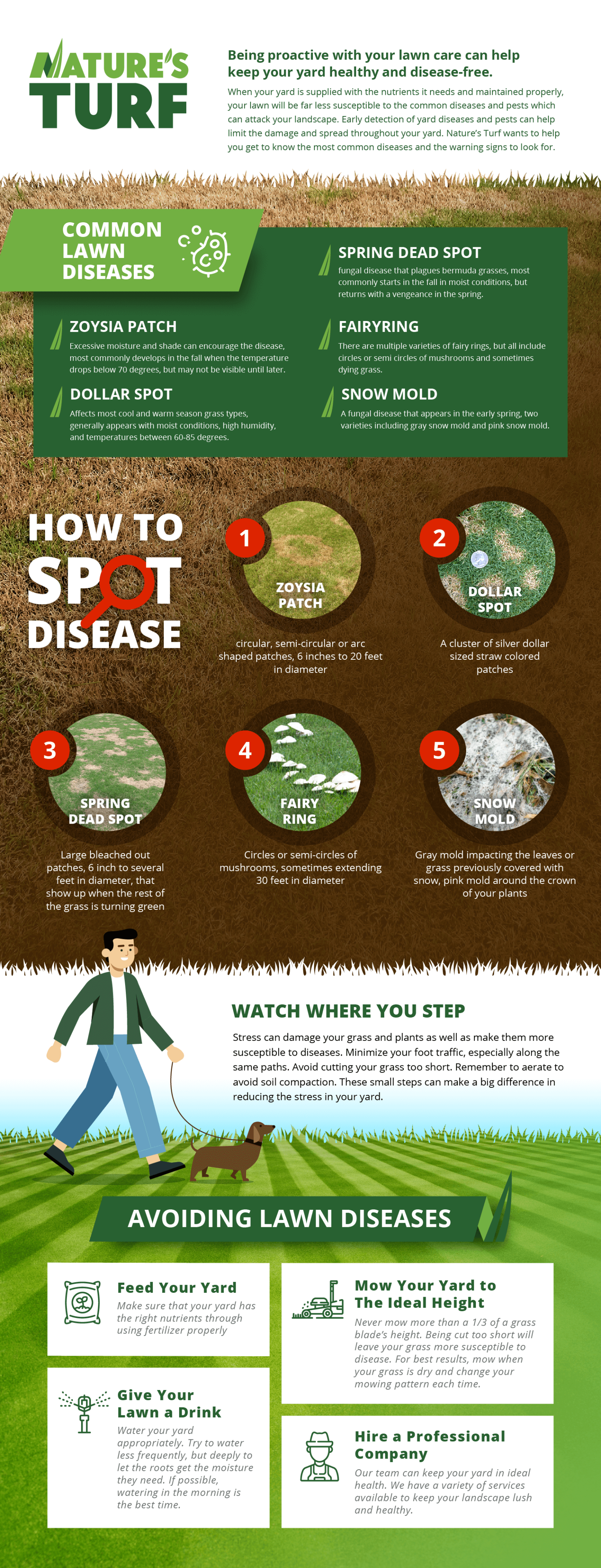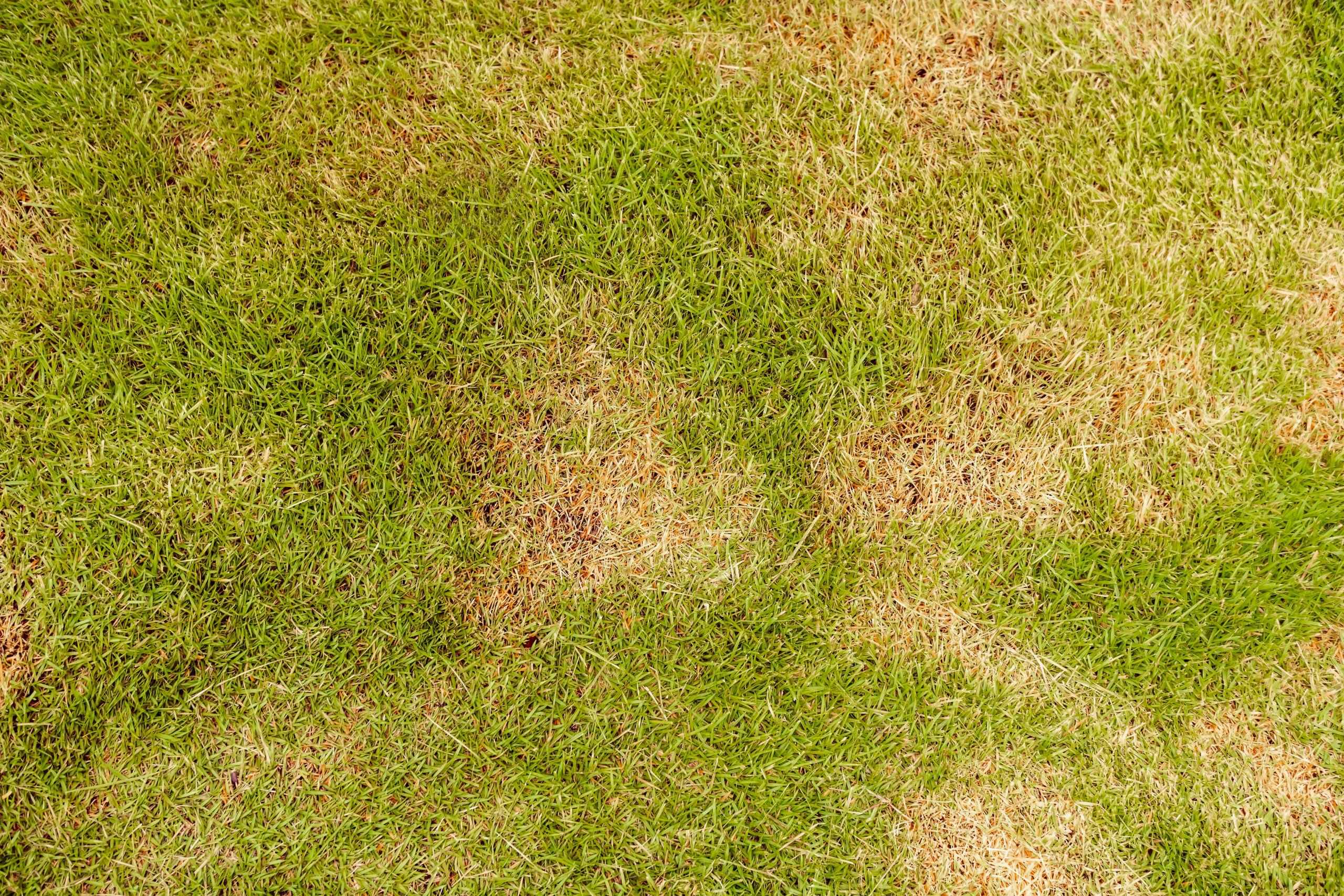Diseases can creep into your yard subtly. If you are not maintaining your yard and looking out for signs, your lawn could be at risk. Being proactive with your maintenance can help prevent many diseases and infestation. When your lawn is lacking in nutrients, your turf will be more susceptible to diseases and pests regardless of your grass type. Some diseases only manifest in certain grass varieties or conditions though. Early detection can help tremendously when combating disease and pests. Our turf experts at Nature’s Turf want to help you guard against diseases and keep your yard looking its best. Follow these tips for keeping your yard in good health!
The Most Common Lawn Diseases:
- Zoysia Patch: Mostly Circular Patches
- Dollar Spot: Cluster of Spots
- Spring Dead Spot: Large Discolored Patches
- Fairy Ring: Ring of Mushrooms
- Snow Mold: Gray or Pink Mold
Turf Health Tips:
- Look for Evidence of Disease—Each disease has different characteristics, but if you see discoloration, patches, mold, mildew, or fungus, then your turf is probably sick. Look for specific patterns and compare them with the description of each disease. Your turf will require a different treatment plan depending on the sickness. Reach out to our team if you notice evidence of any disease. We will do everything possible to bring your turf to complete healing.
- Observe for Evidence of Pests—Even if you cannot spot the pests themselves, they usually leave a mess behind. Look for holes in leaves and chewed down grass or plants. You need to be careful what insecticides you use on your lawn, so give our team a call. We can help with insect control and protect your yard in the future.
- Evaluate Your Maintenance—A healthy yard does not happen by accident. Your turf needs water, proper sunlight, nutrients, and regular trimming. If your yard is deficient in a key ingredient, such as nitrogen, your yard can weaken and lose its green hue. Remember to deeply water your lawn in the morning, depending on weather conditions. Deeply watering requires 2-3 waterings per week for a total of 1 inch of water. You can do this by hand with a hose or using a sprinkler. Aeration is also important for helping your soil get the moisture and nutrients needed to feed your grass. Your soil can become compacted without proper aeration. Our team can help you formulate a plan to keep your yard healthy.
- Schedule With Nature’s Turf—Taking care of your grass properly from the beginning is much easier than treating disease and trying to restore life. We build customized lawn care plans to help your turf look impressive and remain healthy. Our team can conduct soil tests to determine if your yard is deficient and recommend treatment. If there are diseases or pests present, we will handle those issues and plan for prevention in the future.
If you are ready to make the health and beauty of your turf a priority, schedule now with Nature’s Turf. We know how to keep your lawn healthy year-round!









